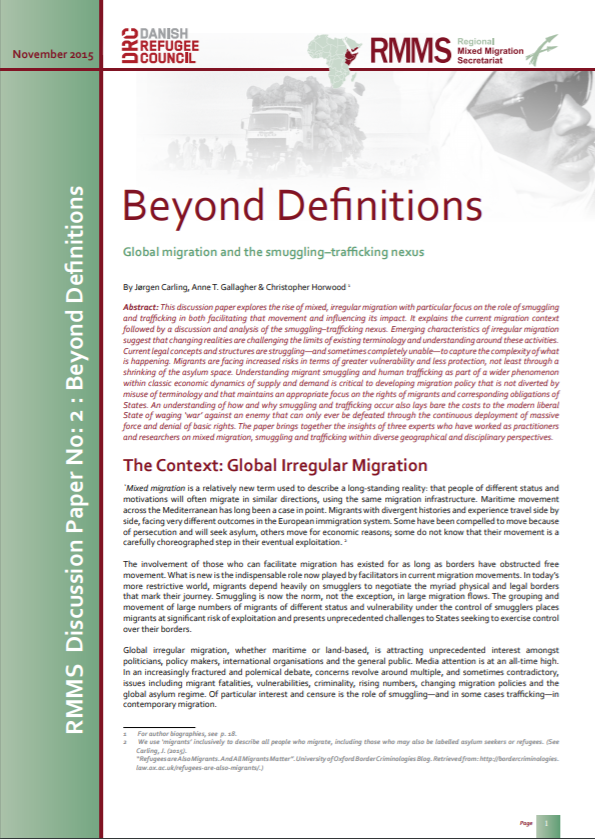Rome Declaration of the Ministerial Conference of the Khartoum Process (EU-Horn of Africa Migration Route Initiative)

The Rome Declaration, adopted at the Ministerial Conference in Rome in 2014, is the key strategic document of the Khartoum Process whereby its members agreed to assist participating states in tackling human trafficking and smuggling between the Horn of Africa and Europe.
Country
Worldwide
Region
Worldwide
Year
2014
Category








